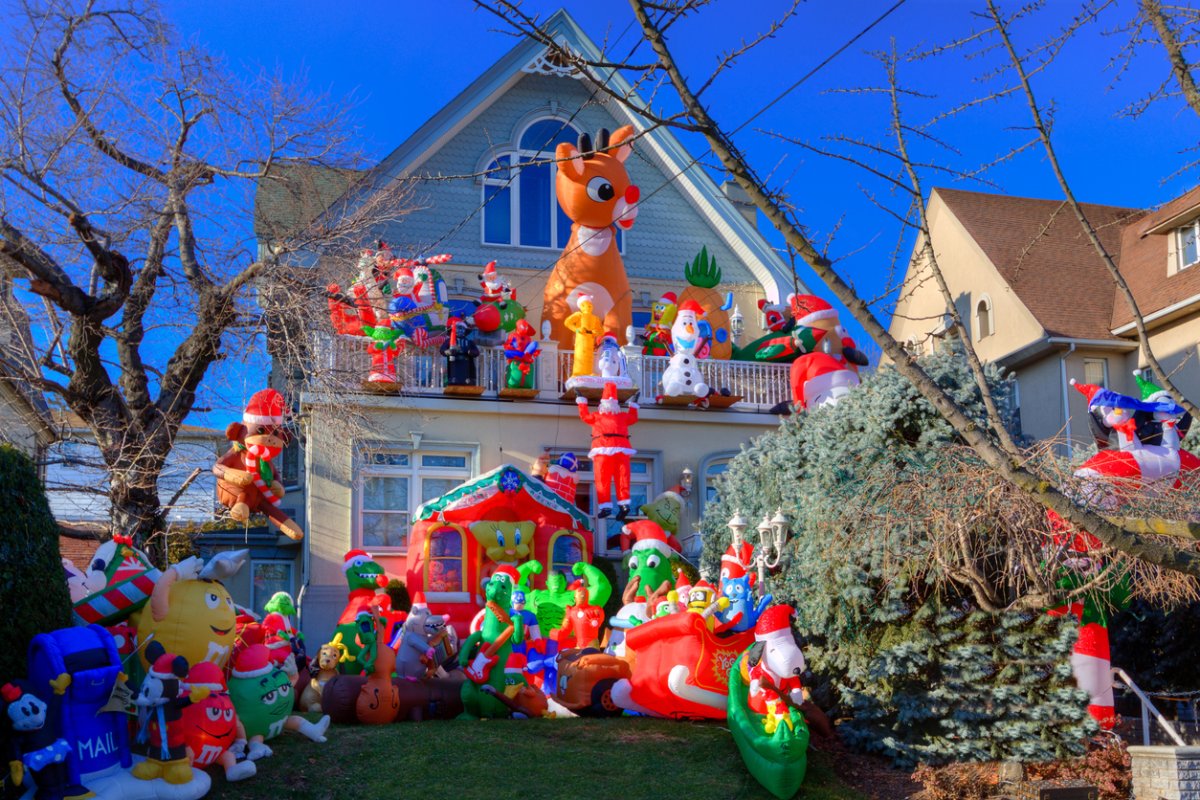

We may earn revenue from the products available on this page and participate in affiliate programs. Learn More ›
Decorating for Christmas, Halloween, and other holidays is a great way to spread cheer around the neighborhood. Whether you’re revamping your Halloween decorations or looking to up your Christmas decorating game, you might be considering purchasing an inflatable (or a few inflatables) for your front yard. While Christmas inflatables can certainly be a welcome addition to your home’s outdoor decor, there are a few important things to know before finalizing a purchase. Read on to learn a few tips, including some that Sydney Joublanc, Associate Merchant of Decorative Holiday at The Home Depot, shared with us.
1. How You Will Display the Inflatable in Your Yard
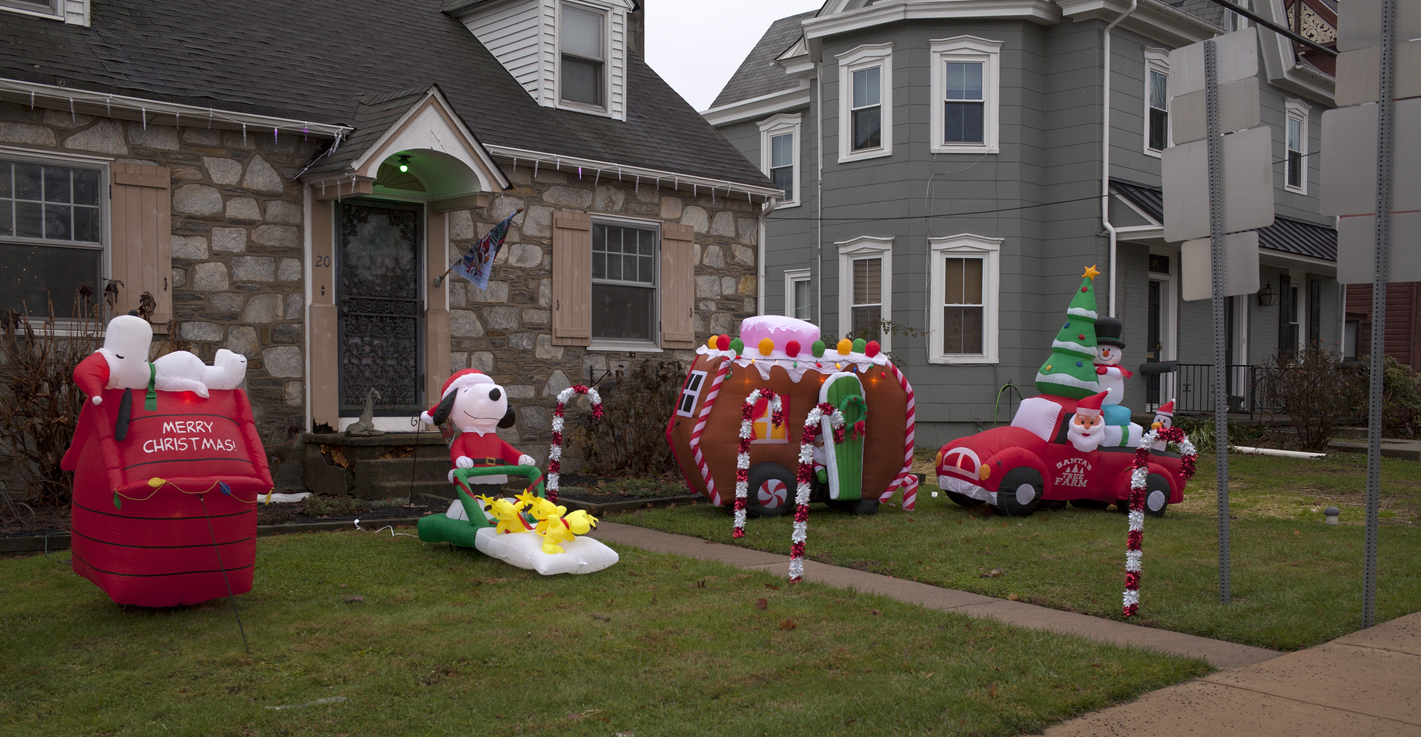
One of the first things you’ll want to think about before purchasing any holiday inflatables is your desired layout. How many inflatables do you want to purchase? Where do you want to place them in the yard?
“Make sure the inflatable is suitable for your yard or display space,” says Joublanc. “Measure the area and choose inflatables that complement your theme without creating clutter. Take into account dimensions and maintain sufficient distance between inflatables to prevent collisions. Allow room for possible tipping and position inflatables near electrical outlets.” You also want to make sure that the inflatables won’t rub against sharp branches, one another, or other impediments in your yard.
Most inflatable yard decorations, like this Giant-Sized Santa Holiday Inflatable, are made from waterproof nylon or other synthetic materials so they can resist rain. But you do need to keep them from soaking in water, so if puddles form in the yard, move them to a drier location.
RELATED: The Best Outdoor Christmas Decorations to Spread Holiday Cheer
2. How Much Energy It Will Consume
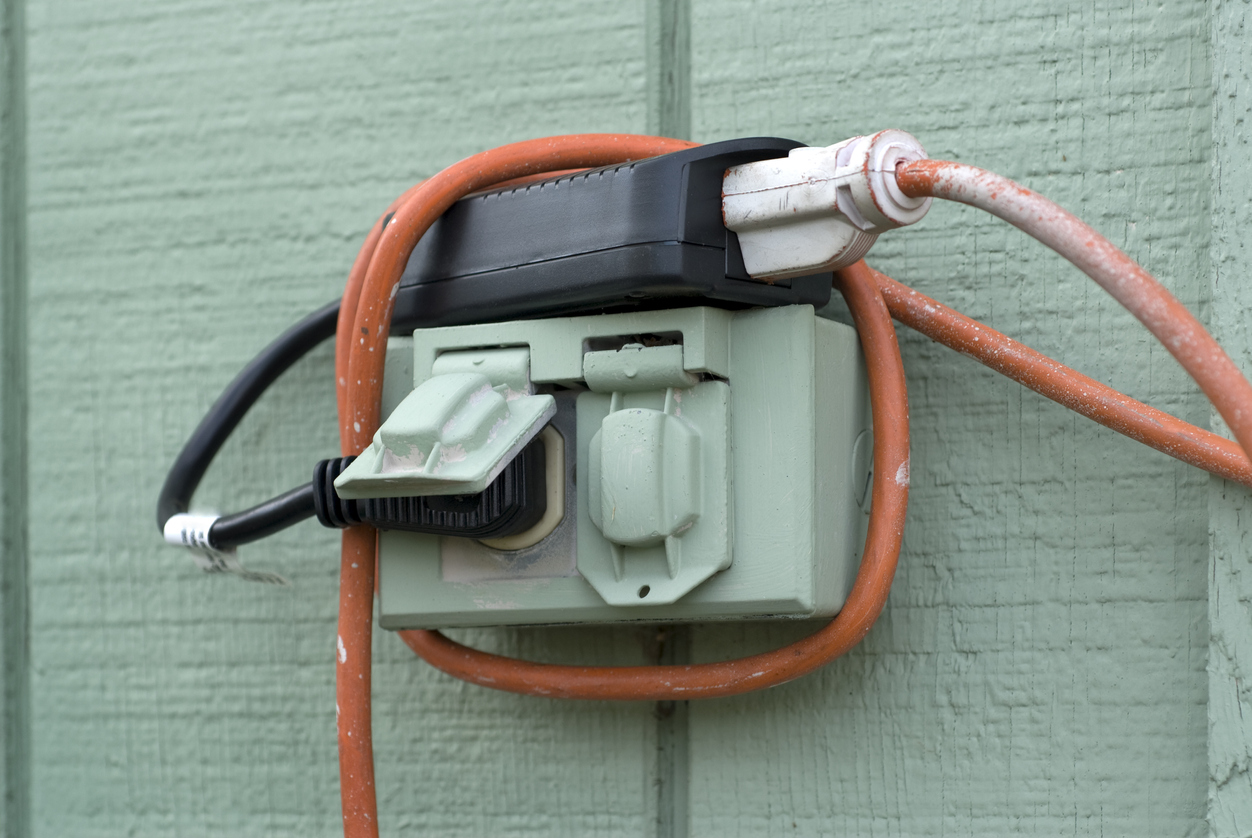
Adding inflatables to your holiday decor will increase your home’s energy usage. While the changes to your electric bill shouldn’t be too substantial, especially if you choose a low-voltage inflatable like this Snowman Family, an increased bill is a factor you will want to consider when choosing how many inflatables to add to your yard.
The exact amount of energy an inflatable uses will vary based on how long you leave it running and the wattage it consumes. Keep in mind that the majority of inflatable manufacturers do not recommend running them for more than eight hours at a time to extend the lifespan of the blower.
While some smaller inflatables may only use about 25 to 100 watts per hour, larger ones could require significantly more. You can calculate the cost of powering inflatables each day using a basic formula:
[(Watts x Number of Hours)/1000] x kilowatt-hour cost
As an example, the formula would look like this for a 75-watt inflatable run for eight hours each day (with an 18 cents/kilowatt-hour cost):
- 75 x 8 = 600
- 600/1,000 = 0.6
- 0.6 x .18 = .11
With this example, it would cost 11 cents each day to run the inflatable. While this doesn’t seem like much, consider how many different inflatables you’ll be running and how many days you plan to have your decorations on display.
RELATED: The 16 Best Garage Door Christmas Decorations
3. What the Inflatable Will Look Like When It’s Not On
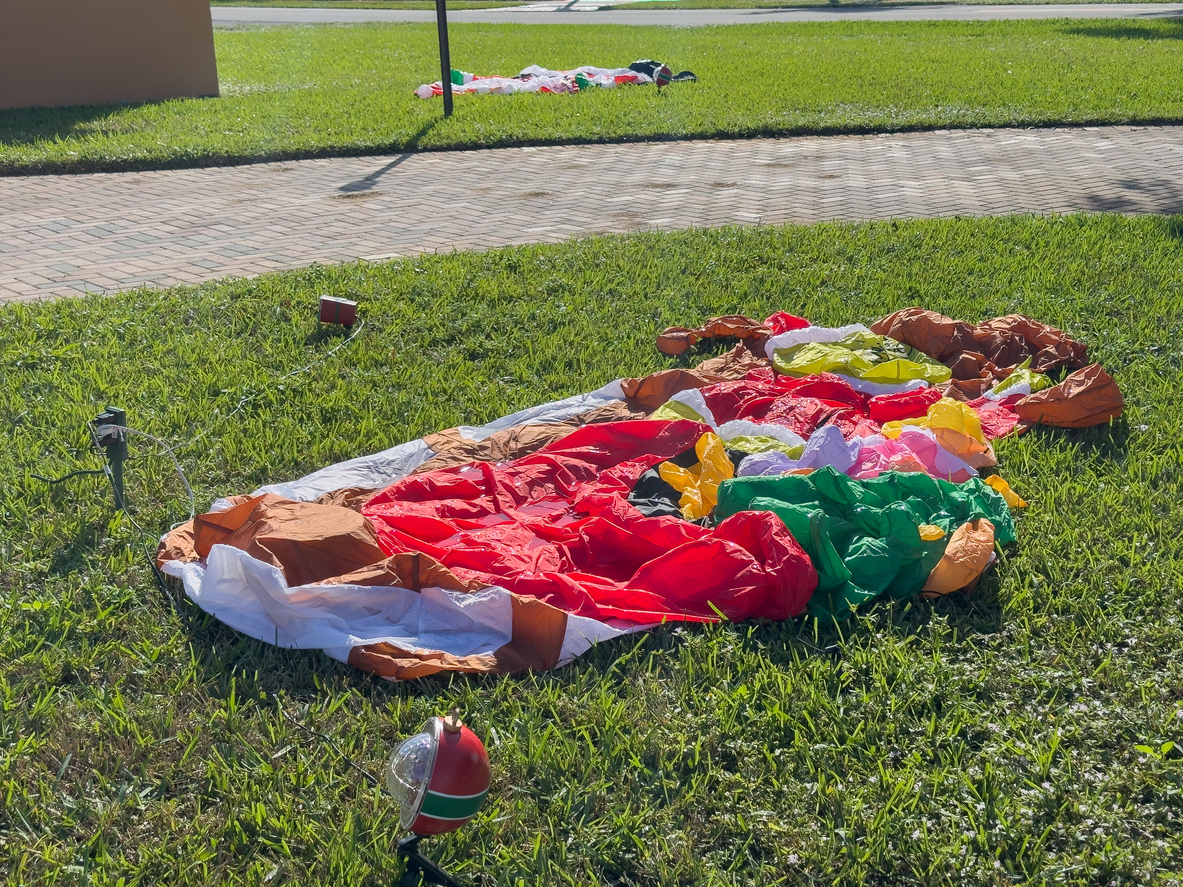
Another thing you might want to think about before finalizing a purchase is how your holiday inflatables will look when they’re not running and how this will impact the overall look of your yard. When inflatables are not on, they (obviously) do not remain inflated. Instead, they’ll lay flat on your yard, looking like colorful patches of fabric. Some people think that this detracts from the look of their Christmas or Halloween decorations during the day when nothing is on or running, while others don’t mind the deflated decorations. It all comes down to your personal preferences.
RELATED: Brighten Up Your Holiday With Our Favorite Christmas Light Projectors From Our Testing
4. What You Should Do to Care For and Maintain the Inflatable
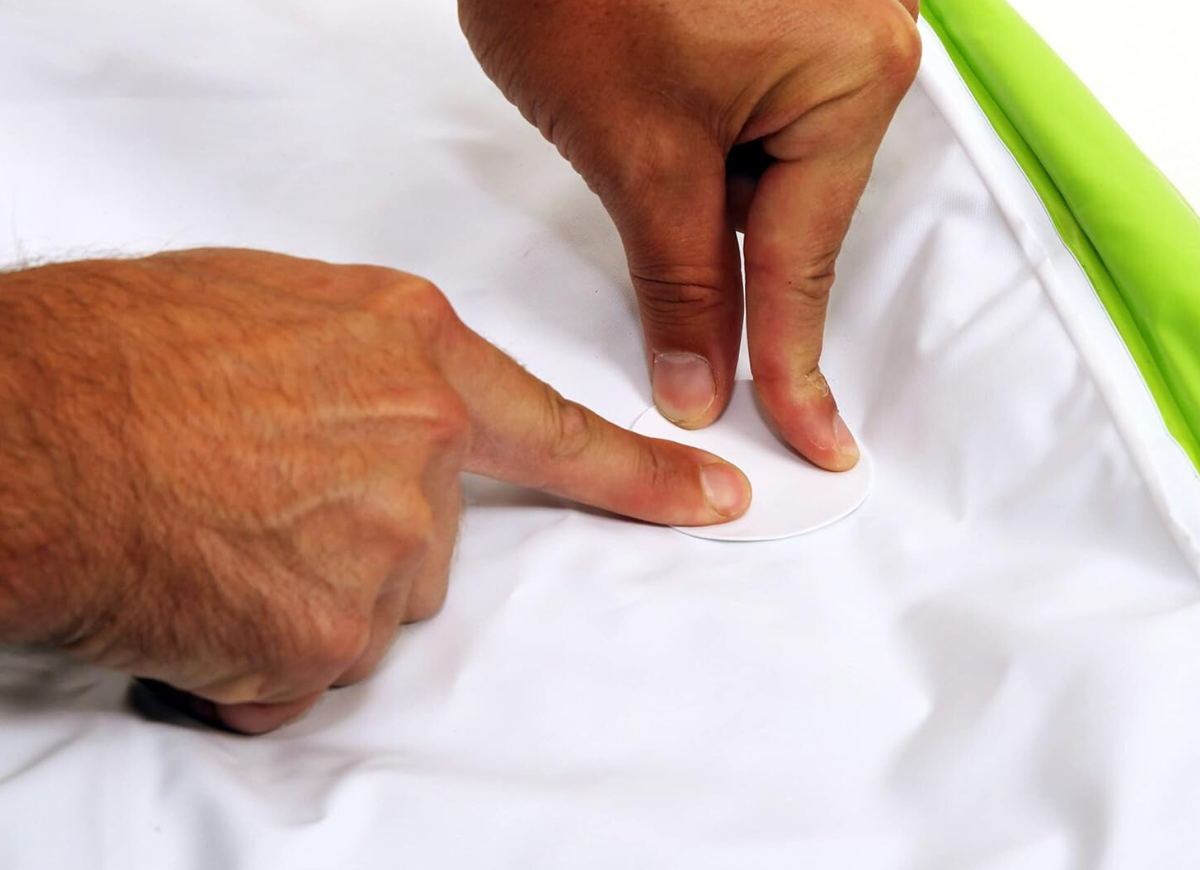
Like other decorations, if you want to keep your inflatables looking their best, they will require some care. Understanding what this care and maintenance looks like before you make a purchase can help you decide whether inflatables are the right type of decoration for you.
Wipe them with a damp cloth or mild soapy water, rinse, and then dry them off before storing them to prevent mold and mildew. In addition to regular cleaning, you will also want to check for any tears or holes each season before putting the decorations back up. Many products come with a repair kit, but if not, you can use a patch kit like this Breliter Inflatable Patch Repair Kit at Amazon for visible areas or heavy-duty tape, such as duct tape, to patch holes that aren’t on view from the street. To make the repairs less noticeable, place the tape on the inside of the fabric.
“In case of strong winds or extreme weather, it’s a good idea to deflate and store your inflatable temporarily to prevent any damage,” says Joublanc. “Although inflatables can usually handle snow, some manufacturers recommend taking them inside when it’s freezing.”
RELATED: 12 Pro Tips for Hanging Holiday Lights Outdoors
5. How You Will Safely Store the Inflatable During the Off-Season
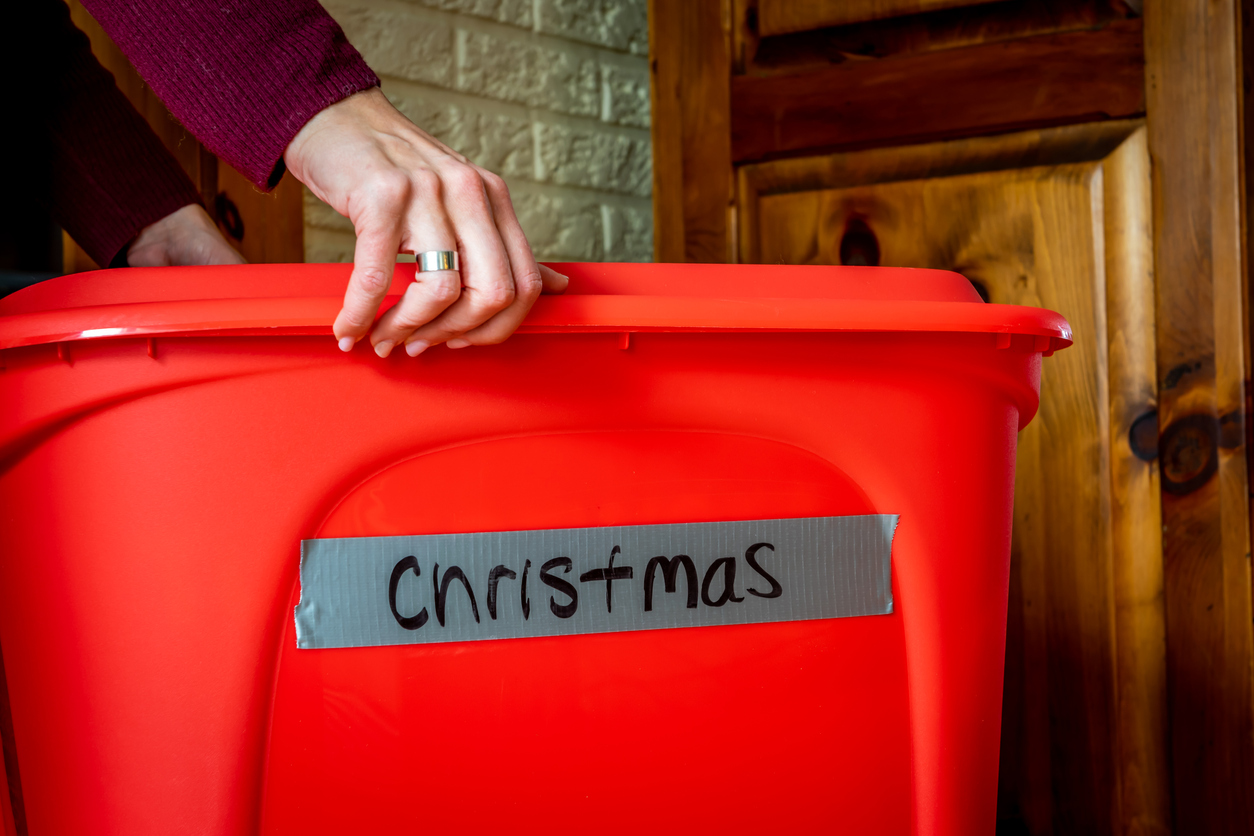
Planning for safe storage before you purchase an inflatable is also important. Using a storage bin with a lid will protect your inflatable from getting dirty or damaged by pests when it isn’t in use. Place any smaller components in plastic bags to prevent them from getting lost. Add these bags and the product instructions from the manufacturer to the bin for storage. “Fold with the zipper open while storing. This will make your inflatable smaller and easier to store,” says Joublanc. After everything is packed up, label the bin so you remember what’s inside, and then store it in a cool, dry location.
